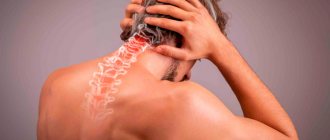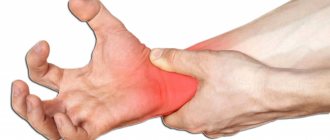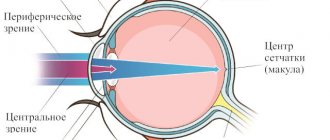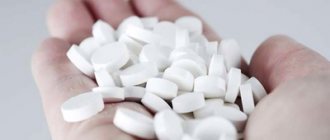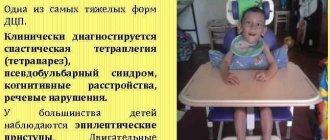Features of the condition and symptoms
It is necessary to pay attention to the accompanying symptoms so that it is easier to identify the cause of the swelling in the head.
Pressure, swelling of the head is often accompanied by a feeling of fogginess and numbness of the limbs. All this leads to a deterioration in cognitive function and, in some cases, causes memory loss and disorientation. People with a chronic feeling of fullness are characterized by impaired concentration and decreased ability to work. They learn worse and absorb new information, and also suffer from chronic fatigue.
Common neurological symptoms are also accompanied by other signs of pathologies:
- spots before the eyes;
- cardiopalmus;
- sweating and increased fatigue;
- dizziness and nausea, leading to vomiting;
- fluctuations in blood pressure;
- increased nervousness, aggressiveness;
- sensitivity to weather changes.
If a person has the feeling that his head is about to burst, he needs to pay attention to additional symptoms, which will depend on the cause of the condition. With infectious lesions of the brain or the body as a whole, high fever, chills and muscle pain appear.
The most dangerous infection, meningitis, is accompanied by unbearable headaches and stiff neck muscles. This condition is also characterized by frequent vomiting.
With hypertension, floaters often appear before the eyes and numbness in the arms or legs.
With circulatory diseases, symptoms worsen in a horizontal position. Also, pain and a feeling of fullness appear after prolonged work with the head down. It is especially dangerous to be in stuffy, unventilated rooms.
Meniere's disease: why do you feel dizzy?
Dizziness is always an alarming symptom. It does not appear in a healthy body; it certainly has a reason. Even a single dizziness may indicate that something is wrong in the body, and if this happens regularly, it’s definitely time to go to the doctor. The most common cause of dizziness is ear inflammation, but you should not rush to treat it yourself. Sometimes “simple” inflammation can hide a much more dangerous pathology, such as Meniere’s disease (or syndrome).
History and statistics
Meniere's disease was named after the doctor who was the first to fully describe its symptoms. In 1861, Prosper Meunier delivered a report at the Paris Academy of Sciences “On damage to the inner ear, giving symptoms of apoplectic hemorrhage in the brain.” The French doctor prepared for this report for more than 30 years.
Meniere described the symptoms of the disease as follows: “A young man of strong constitution suddenly, for no apparent reason, experiences dizziness, noise in the ear, decreased hearing, vomiting, a feeling of indescribable melancholy and a complete loss of strength; at the same time, the face becomes pale, as if about to faint. Often the patient experiences swaying or a feeling that he is about to fall, and having fallen, as if “stunned,” he cannot get up. Lying on his back, he is forced to lie with his eyes closed, since when he tries to open them, visible objects seem to him to be rotating. The slightest movement of the head increases the feeling of rotation of surrounding objects and nausea. When I try to change the position, vomiting resumes.”
The disease occurs on average in two people out of a thousand. Women get sick more often than men, city dwellers get sick more often than villagers, and mental workers get sick more often than those who work with their hands. The disease is usually detected between the ages of 40 and 60 years. Why it occurs is unknown; currently science believes that the cause is an increase in the amount of endolymph in the inner ear (endolymphatic hydrops).
Anatomy and symptoms
What is endolymph? The inner ear consists of three parts: the cochlea, the vestibule and the semicircular canals, which in turn consist of a bony framework and a membranous inner base. In the membranous part itself, the fluid is called endolymph, and around it is called perilymph. These liquids have different compositions, and in a healthy person they do not mix.
Non-pathological causes of distension
Both illnesses and features of a person’s life can cause feelings of fullness in the head. Unfortunately, it is almost impossible to control them all.
- Constant stress. Residents of megacities are more susceptible to them, even during simple work that does not involve emotional and mental stress. Stress can be triggered by intense experiences, shocks and tragedies.
- Junk food and drinks. Fatty dishes, spicy, salty combined with alcohol, and even flavored with smoking. All this has an extremely negative effect on blood vessels. Improper nutrition provokes atherosclerosis, which can lead to strokes and heart attacks.
- Abrupt climate change. Weather dependence can cause severe discomfort. Such sensations can only be controlled by taking special medications.
- Use of medications. Various dietary supplements can cause discomfort. Some medications, such as antidepressants, sleeping pills, anticonvulsants and painkillers, also have similar side effects.
- Lack of sleep and rest. If a person constantly sleeps for 4-6 hours, sooner or later he will encounter unpleasant neurological disorders. They can also be provoked by incorrectly selected accessories - mattress, pillow.
- Fasting and dangerous diets. Many women follow aggressive nutrition programs, causing enormous harm to the body. It is not recommended to do this without medical supervision.
- Overexertion and heavy physical labor. Intense sports and exercise for the purpose of losing weight can affect the condition of blood vessels and the nervous system. It is not recommended to lose more than 1 kg per week.
If the symptoms accompanying the feeling of fullness in the head occur regardless of adjustments in diet and rest regimen, the person will need a comprehensive diagnosis. After all, the reason may be hidden in pathological disorders.
Pathological factors
Among the diseases and disorders that cause bursting pain in the head are:
- VSD. Vegetative-vascular dystonia is a set of symptoms that arise from changes in the functioning of the nervous system.
- High intracranial pressure. It becomes a consequence of tumors, cysts, and hormonal disorders. It also develops in response to congenital changes and the use of certain groups of medications.
- Infections. Brain infections are especially dangerous. But other diseases can also be diagnosed. For example, with tuberculosis.
- Benign and malignant neoplasms. They provoke a feeling of swelling of the brain tumor, as well as the organs of the neck. The pain is unbearable, causing a wide range of symptoms over time.
- Diseases of the hormonal system. High progesterone, changes in estrogen levels, and fluctuations in other hormones.
- Meniere's disease. A disorder of the vestibular system that is practically untreatable.
- Pathologies of the thyroid gland. A deficiency or excess of organ hormones can provoke unfavorable symptoms.
Often, a feeling of squeezing in the head appears after injuries to the skull or concussions.
Treatment
It is impossible to completely cure attacks of pressing headaches with the help of drug therapy. Sometimes the drug amitriptyline is prescribed - this is a tricyclic antidepressant that will gradually reduce stress levels, relax the muscles of the cervical spine, indirectly affecting the cause of the headache.
Medicines
Traditionally, for pressing headaches, non-steroidal anti-inflammatory drugs and cyclooxygenase inhibitors are used, which suppress inflammatory reactions. But the cause of the spasm, which causes tension in the tendon helmet of the head and pain, remains unchanged.
Physiotherapy
If the pressing pain in the head is caused by spasms of the neck muscles caused by heavy physical work, the use of myofascial release is justified. Massage in this case can lead to muscle stimulation, and the spasm will return. You can try effective stretches at home.
When lifting heavy objects, the scalene muscles and the levator scapula muscle spasm. The scalene muscles are involved in the forced inhalation that occurs during physical activity. Due to the elevation of the shoulder girdle, the levator scapulae muscle is overloaded. With the help of physiotherapy, you can relax the muscles, but not eliminate the root cause of the spasm. At home, warm showers, vibrating beds, and Lyapko applicators help. In rehabilitation centers, magnetic therapy and amplipulse are used.
Special physical education
Among the methods that help relax the tendon helmet of the head, working with the muscles that are attached to the bones of the skull is suitable:
- Take two tennis balls and put them in a sock. Lying on your back, place the balls under the back of your head. Wait until the muscles relax. In many cases, the tension in the head goes away.
- Stand near the wall, turn the back of your hand inward. Pushing your hand into the wall as you exhale, tilt your head from the shoulder blade forward and to the side. Hold the position for 30 seconds until the tension decreases, breathe calmly.
- Grab the collarbone with the same hand and pull it down as you exhale. Tilt your head in the opposite direction and back diagonally. Hold the position until discomfort decreases, breathe through the diaphragm.
Exercises for the neck muscles are repeated on both sides, especially where the shoulder is higher.
With a pressing headache that occurs during prolonged sitting, the influence of relaxed gluteal muscles occurs. They are attached to the sacrum, to which the spinal cord membrane is also fixed. At the top it ends on the occipital bone. When sitting, the sacral ligaments are overloaded because the muscles do not function and become pinched. Therefore, you need to massage the contours of the gluteal muscles to relieve tension.
Patient examination methods
If you have a constant headache, you need to do an MRI.
To identify the reasons why your head seems to be bursting from the inside, you need to turn to instrumental techniques:
- do a CT scan to detect cysts, tumors and changes in the brain;
- perform an ultrasound to analyze blood vessels;
- undergo an MRI if circulatory pathologies and tumors are suspected;
- take an x-ray if there are changes in cartilage and bones;
- sign up for electromyography to study the state of neurons and the muscular system.
Patients are also prescribed blood and urine tests. They are necessary to assess inflammatory reactions and hormone levels.
After diagnosis, the doctor evaluates the results. Based on them, an accurate diagnosis can be made for further therapy.
Treatment methods
Herbal compresses will alleviate the condition.
To treat a bursting feeling in the head, it is important to establish the cause of the disorder. Next, treatment tactics are prescribed. General recommendations to reduce pain are required:
- You should not take medications without a doctor’s examination;
- You can relieve tension by taking a comfortable position and relaxing;
- a towel soaked in cool water will help with feeling unwell;
- you should open a window or window so that it is not stuffy;
- if there is no nausea, you can drink warm tea.
When it becomes easier, you should not immediately start heavy work or exercise.
Folk recipes
During treatment, you can use decoctions of chamomile, mint, and St. John's wort, but only after discussion with your doctor. You also take 40 drops of propolis tincture and add honey to your drinks. Cosmetic clay compresses applied to the forehead before bed will also help combat discomfort.
Medicines
Prescription of medications depends on the cause of the condition. Sometimes taking an NSAID is enough to relieve pain. But in most cases an integrated approach is required. They use medications to improve blood circulation, take analgesics and vitamins in courses.
When using medications, it is important to follow the instructions and not ignore contraindications.
Preventive actions
Physical activity and a healthy diet are the main protectors of the body.
To prevent unwanted symptoms and diseases associated with them, it is necessary:
- sleep and work in a ventilated area;
- regularly walk in parks, visit the forest if possible;
- engage in physical exercise without excessive stress, but do not give up sports completely;
- attend professional head and neck massage courses, as well as master self-massage techniques;
- sleep at least 8 hours a day;
- take natural sedatives if you are prone to anxiety and stress;
- stop smoking and frequent drinking of alcoholic beverages, normalize your diet.
Preventive measures must be taken constantly, not only when unwanted symptoms appear. It is recommended to take vitamin courses every year and monitor your blood pressure levels.
How are the causes of heaviness in the head diagnosed?
As you can see, the number of diseases that can cause heaviness in the head and its accompanying manifestations is quite large and many of them are very serious. However, you should not give in to panic when the slightest discomfort appears in your head. It is much more advisable to consult a doctor who can competently assess all existing symptoms and prescribe the necessary diagnostic measures.
The examination should begin with a visit to a neurologist, but subsequently consultations with a cardiologist, ophthalmologist and otolaryngologist may also be necessary.
To determine the causes of heaviness in the head, dizziness, weakness and other similar symptoms, encephalography, magnetic resonance imaging, and computed tomography are prescribed. An electrocardiographic examination, Doppler ultrasound of the vessels of the head and neck, and an audiographic examination are often also required.
Timely diagnosis of complaints of unpleasant sensations in the head is of paramount importance. The correct approach to treatment and its success largely depend on its quality and usefulness.
